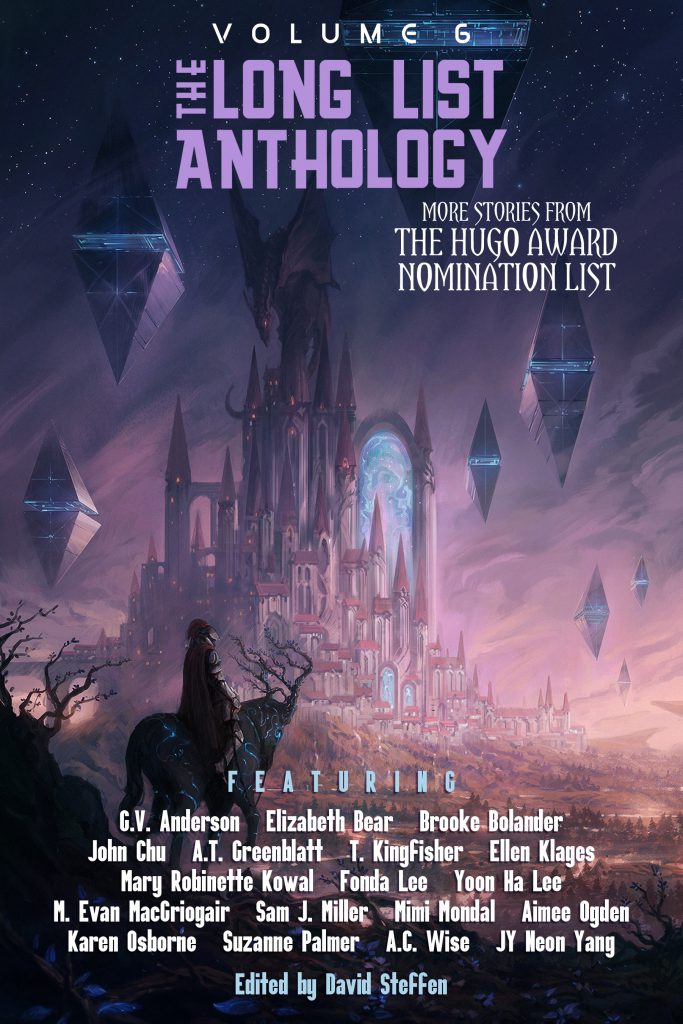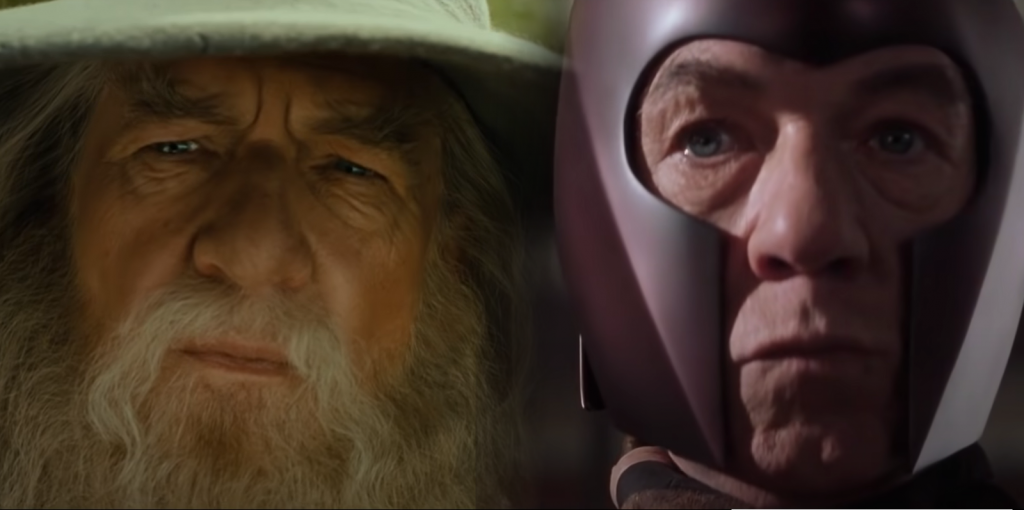edited by David Steffen and Ziv Wities
Haphazard clusters of empty cubicles and potted ferns served as strategic cover. The grey carpet was now a canvas— streaked, splattered, and sprinkled with dirt, blood, and broken glass, it rendered in impressionist strokes the market crash and concomitant sniper threat.
Kondo barked his orders. “Rocco, cover the east window. Valiant, you’re on ammo detail. Pepsi, keep an eye on market changes. Luna, get me a full asset list.”
They had the high ground advantage, twenty-eight stories up in the commerce district. Kondo scoped a straggler through the reticle on street level. The HUD indicated a bounty of 1200 creds. He squeezed the trigger, and with a flourish of blood on the street came the satisfying ding of a credit transfer, like a percussionist’s triangle. With inflation increasing exponentially, his team would need all the credits they could get.
“Got that asset list,” Luna said, and handed Kondo the ePad.
The roster cross-linked with commodities and valuations. Most of the team had taken his advice to hold their rights to a fair trial and security of their person.
“Hendricks,” he shouted, “Why the fuck haven’t you sold your goddamn media rights?”
“They’re classic tunes, boss.”
“Fuck your tunes. We need the ammo. And that goes for the rest of you, too. Copyright licenses aren’t worth a goddamn if you’re dead.”
Kondo fancied himself a decent manager, but somehow he’d failed to impress on his traders the folly of investing in cultural access permissions. CAPs were a hot commodity for the subsistence class, but investors should know that after IBM and Google cracked aesthetic automation, those products were doomed to perpetual depreciation. Owning a piece of the AI or the media conglomerates was the only way to win at the art game.
“I want those media assets gone,” Kondo shouted. “That means everyone.”
Bleeps and hums of market transactions turned the office into a discordant electronic aria with Kondo voicing orders over the din. “Dump all your CAPs. We’re working with media-free portfolios from now.”
Hendricks sat idly at his ePad. “I can’t sell at this price. It’s a crime against music.”
“It’s only going down from here,” Kondo said.
“You’re wrong about the CAPs, boss.”
“Bullshit I’m wrong. Once the machines can make something, the commodity value drops. It works the same for everything.”
“Not music,” Hendricks said. “Not art. Sure, people only care about efficient production when it comes to functional goods, but for aesthetics they want the genuine article. That’s why there’s a premium for hand-made, right? And that means automation actually boosts the value of art.”
“That’s not what the market trends say.”
“It’s hard to sell art in a recession. But I know wealthy buyers. Collectors.”
“We can’t afford to speculate right now, especially on CAPs. If you don’t sell the damn media, you’re about one stray shot from me releasing your work contract.”
“That’s your call, boss. But they’re my nest egg, and I gotta hold them—at least wait out the crash.”
“Stubborn shit,” Kondo said, then shouted his commands. “Everyone renew your bounty license. Head values are gonna keep rising. Keep a buffer of ten-k and use the rest for ammo and expendables.”
Within minutes came the ballet of Amazon delivery drones, hovering through rectangles of glass-edged sky to drop ammunition boxes. The fabbers spit out rifle parts and the team assembled them, locked and loaded, spread themselves around the windows.
“Shit! I got a price on me!” Che Monet shouted.
Sure enough, Che’s bounty hovered holographically over his head, a cool 4k offered jointly by TK Pharma and The 6ix Econocrimes Enforcement division.
“I told you not to sell your right to a trial!”
Che was about to say something when his head exploded in a flourish of blood and brains. Above his body, little stalactites hung in sinewy bone-tipped strands from the ceiling tiles. Someone on the street or maybe a nearby ‘scraper was a little bit richer.
It wasn’t a complete write-off. Kondo at least got Che’s assets because of the work contract—getting iced on the job was a strict violation. But he was down a team-member, and needed the manpower for today’s trading. He’d have to reinvest in labor.
Kondo posted the opening, and applications started coming in faster than stray bullets through the office. Rocco got a price on his head, too, and retreated quick, like Che should have, while sniper fire whizzed through the office, punching holes through flimsy cubicles. In the settling snow of drywall flakes and pulverized IKEA products, Kondo ducked behind a cubicle to assess résumés. The salary expectations were shockingly low, but it made sense given the crash.
“We’re getting some new team members,” Kondo said, tapping through LinkedIn’s HireMe app.
“How many?” Valiant said.
“Three,” Kondo said.
“Labor that low, huh?”
Kondo walked to the fire escape and unlocked the east stairwell emergency door. A few minutes later the first recruit came through, sweating and panting.
“Welcome aboard. I’m Kondo Kevlar. You Calvin?”
“That’s me. Calvin Kholstomer. Happy to meet you, sir, and thanks for the opportunity to join your team.”
“I’d give you the tour, but we got a situation on our hands. You got a gun?”
Calvin patted his briefcase.
“When you get a chance, check your portfolio against my specs. By the way, we dress more casual here.”
“Oh, that’s a relief.” Calvin hung his suit on the rack. “So where to?”
“You can set up with Valiant there.”
Calvin strolled over to Valiant, popped open his briefcase on the floor by her side, and assembled his rifle.
Over the next few minutes, the other two hires came through. Karl Angel-Owens and Pavel Dredd. They weren’t A-listers, but Kondo only needed short-term traders to weather the crash, and at these rates signing them wasn’t a hard call.
“What’s the plan, boss?” Valiant said.
“Corporate takeover.” Kondo cocked his shotgun. “You all ready?”
They looked ready, rifles across their chests, helmet visors snapped down, and each one of them holding the right to life and the right to a fair trial. That would buy them some time from the killdrones.
“Move out!”
They took the lift to the ground floor, advanced across the block in tactical formation, and reached their target, BioPharmaSoft HQ. Valiant placed the C4 and blew the gate. With ears still ringing, they charged in through the smoke and over the rubble.
The poor saps inside had all flipped negative, and bounties sparkled in the HUD overlay all across the lobby. Someone had mismanaged BioPharmaSoft big time. Kondo’s team took out the security, the desk jockeys, a couple of suits by the elevator. Someone shot back, winged Pepsi, and Kondo watched BioPharmaSoft get their fine in real-time.
The takeover was going great, right until they hit the third floor.
“Shit!” Karl said. “Our share value is dropping!”
Kondo’s ePad confirmed they were running out of funds. Ammo low. Resupplies off the table. And if they flipped negative, they’d be on the radar of any bounty hunters in the area, not to mention killdrones.
“Hendricks,” Kondo shouted. “If you were planning on selling those CAPs, now’s the time.”
“Sorry, boss. Can’t do it.”
“Then you’re out.”
“You can’t be serious.”
“I don’t want to do it, Hendricks, but we need the liquidity. So you sell the CAPs, or I release the contract.”
“You gotta do what you gotta do, then. I’m not selling.”
“Then take care of yourself, Hendricks.”
Kondo let Hendricks go and accepted the credit boost for the released work contract. It wasn’t much, but it would buy them some time in supplies. Hendricks dipped into the stairwell, and just like that he was off the team.
“Sweep the fourth floor,” Kondo ordered. “We’ll move up from there, collect creds as we go.”
The elevator stopped at the fourth floor. In the widening slit of the doorway, Kondo saw the suits on this floor were all barricaded behind a wall of cubicles. Worse, their HUD values weren’t all negative. Most still had their fundamental rights, and a few of them had bounty licenses.
Kondo ducked behind the elevator wall, and the team followed. A few shots rang through, punching holes in the far side of the elevator.
“Are we outgunned here?” Pavel said.
“Worse than that,” Kondo said. “They might try to buy us out.”
Kondo checked the market. Some patent investments had paid off, and BioPharmaSoft didn’t seem so soft anymore. They had enough cash for a hostile takeover of Kevlar Inc. Kondo watched helplessly as his team values dipped, dipped, and flipped.
“Retreat,” Kondo said, frantically hitting the elevator’s ‘close’ button. “Back to HQ! We need to regroup!”
A hail of gunfire turned the elevator door into a cheese grater.
Then they were back on the street running for their lives. Rocco took a bullet in his spine and collapsed into the gutter.
“Killdrones!” Kondo shouted. “Don’t jaywalk!” With their net worth sub-zero, they couldn’t afford any infractions.
Pepsi took a shot in the shoulder a few paces from HQ, then one in the thigh. He left a bloody streak on the glass door where he slid down to crumple at the bottom.
“We got bounty hunters coming in!” Valiant said.
They were coming, alright. Not just the corporates from the commerce district, but the freelancers, too. Across the street: ripped jeans, a flak jacket, and a machine gun. On the other side: full motorcycle gear, rifle strapped across his back, grenade in one hand. More down the other way, all streaming towards them.
Kondo was last in. While rounds pinged off bulletproof glass, he slammed the door and slapped the red lockdown button. A grenade exploded outside, and when the smoke cleared, water sprayed across the street from a busted hydrant.
“We need to get positive,” Valiant said.
“We don’t have any assets,” Karl said.
“We gotta make a stand here,” Pavel said. “Maybe we get lucky. Snag a straggler or two, climb our way back.”
It was hopeless. Every second Kondo’s team sat on the bottom of the ladder was another second they fell further from the top. The gap between the subsistence class and the investment class grows exponentially. It’s simple math. Without something to invest, without assets to sell, they weren’t just dead in the water. They were sinking.
Security monitors framed the carnage at Kevlar Inc. A siege of bounty hunters forced their way through the windows and exchanged fire with lingering squads of temps and middle management, and the geometry of the gunfight unfolded in sprays of red across marble tiles. The trading floor was a tapestry of browns and reds and glittering bits of glass. Furniture and human bodies were deconstructed by bullets and shrapnel. Incendiaries added singed black stars.
Kondo breathed, lowered his weapon, and felt the last of his will depleting along with the value of his corporate account. In the haze of defeat, through blurred eyes, the wall of security monitors were a gallery of abstract art, each stroke and splatter imbued with the life of his dying corporation.
That was it.
Kondo put Hendricks on comm. Gunfire rang out on the other end.
“How’s it going over there?” Kondo said.
“Got my hands full. Could use some backup.”
“I think I can help you. But you gotta do something for me.”
“What’s that?”
“Those art dealers you were talking about…”
“Whatchu selling?”
“Something unique,” Kondo said. “One of a kind. Really captures the spirit of the crash.”
“Be more specific.”
“Abstract impressionism,” Kondo said. “Mixed media: blood and dirt on carpet.”
Hendricks laughed. “Maybe I can make it work. Send me the images.”
“Sending now.”
“My cut is fifty.”
“You kidding?”
“Let’s make it sixty.”
“Fifty will do.”
Kondo transferred the last of his corporate creds for the gambit. Just enough to get the bounty hunters off of Hendricks, enough to let him work. Meanwhile, Karl ate a bullet, and a swarm of killdrones descended on the glass with whirring drills.
“Got a potential buyer,” Hendricks said. “Billionaire by the name of Cash.”
“That’s fitting.”
“Mister Cash Rexall. He wants to meet you on the trading floor,” Hendricks said. “Right now!”
Kondo sprinted to the trading floor and flung himself through the door, rolling under a spray of gunfire. He crawled from cover to cover, firing intermittently to scare off hunters. If he was going to be someone’s bounty, he would at least make them work for it.
The holocomm lit up and projected a blue-green billionaire on the trading floor. Bullets whizzed harmlessly through the avatar of Cash Rexall, while Kondo crawled to his holographic feet.
“Mister Kevlar!” Cash said. “It is absolutely magnificent!” With his arms outstretched, Cash spun in place, waltzing holographically around the chaos of the carpet through a hail of gunfire. “This is the art I’ve been searching for! A piece that truly captures the spirit of the times, in form and content! Something truly new, a contemporary art that shocks and surprises without sacrificing substance! This is where the jagged red lines of the market tear from their confines of the stock index and reach into the physical space of the trading floor. Truly wonderful! I’ll take it! I’ll take all of them! The whole collection! Send me all of your carpets!”
Cash Rexall’s credits rolled in, a tremendously generous price that brought Kondo and his entire team back into the green… and made Hendricks a damn millionaire! The gunfire outside slowed to a trickle, then stopped, and before long, the crash was over.
Kondo had wine delivered to celebrate the survival of the company, and of the remaining employees who didn’t break contract.
“A toast,” Kondo said. “Thank god for Cash Rexall, and all the other billionaire investors. If it weren’t for people like him, an economy like this wouldn’t be possible.”
They clinked glasses, and drank, and smiled at their good fortune. Kevlar Inc survived the bust, thanks to the investment of Cash Rexall. And they were in a boom now.
Kondo probably could have come up with a more creative title for his collection of carpets than Boom & Bust, but he supposed it didn’t really matter. What mattered was that Cash Rexall bought it for the price it deserved. With a renewed appreciation for the art world, Kondo brought the wine to his lips, slowly, and thought about his masterpiece, now on display in the collection of someone who truly understood it, who could truly connect with its message.
© 2021 by David F. Shultz
2500 words
Author’s Note: This absurdist story about gun-toting salarymen waging corporate war in the commerce district was inspired by the destructive and circular logic of late stage capitalism. A word of thanks is owed to the members of the Toronto Science Fiction and Fantasy Writers who helped develop the piece.

David F. Shultz writes speculative fiction and poetry from Toronto, ON, where he is lead editor at tdotSpec. His over fifty published works can be found through publishers such as Abyss & Apex, Third Flatiron, and Dreams & Nightmares. Website: davidfshultz.com
If you enjoyed the story you might also want to visit our Support Page, or read the other story offerings.








